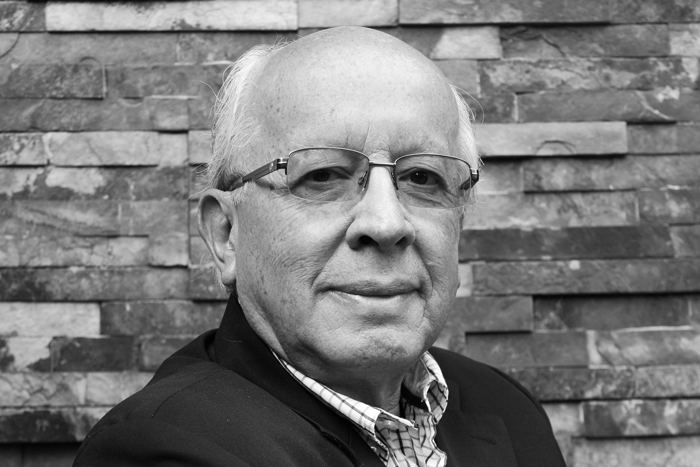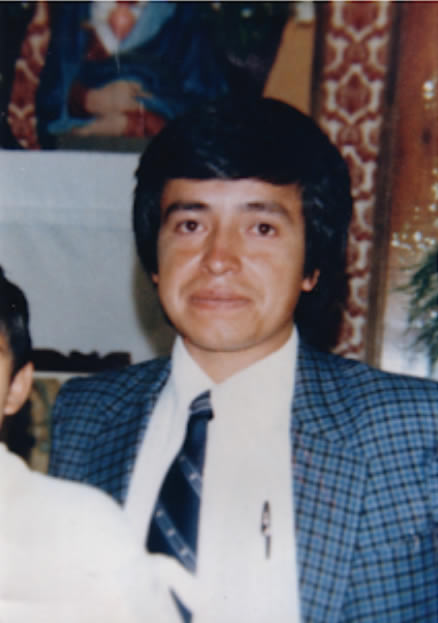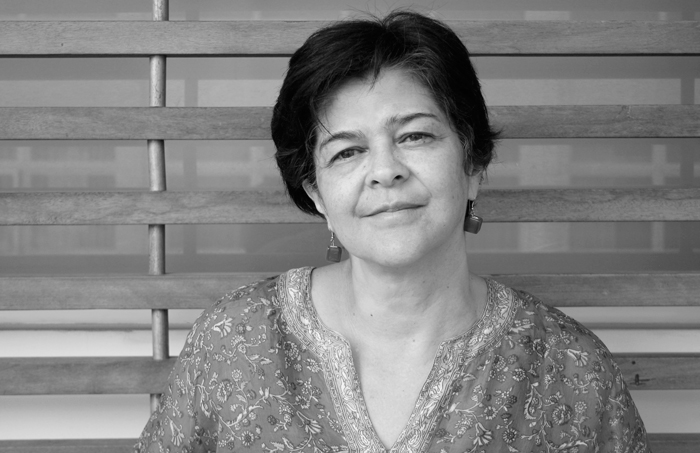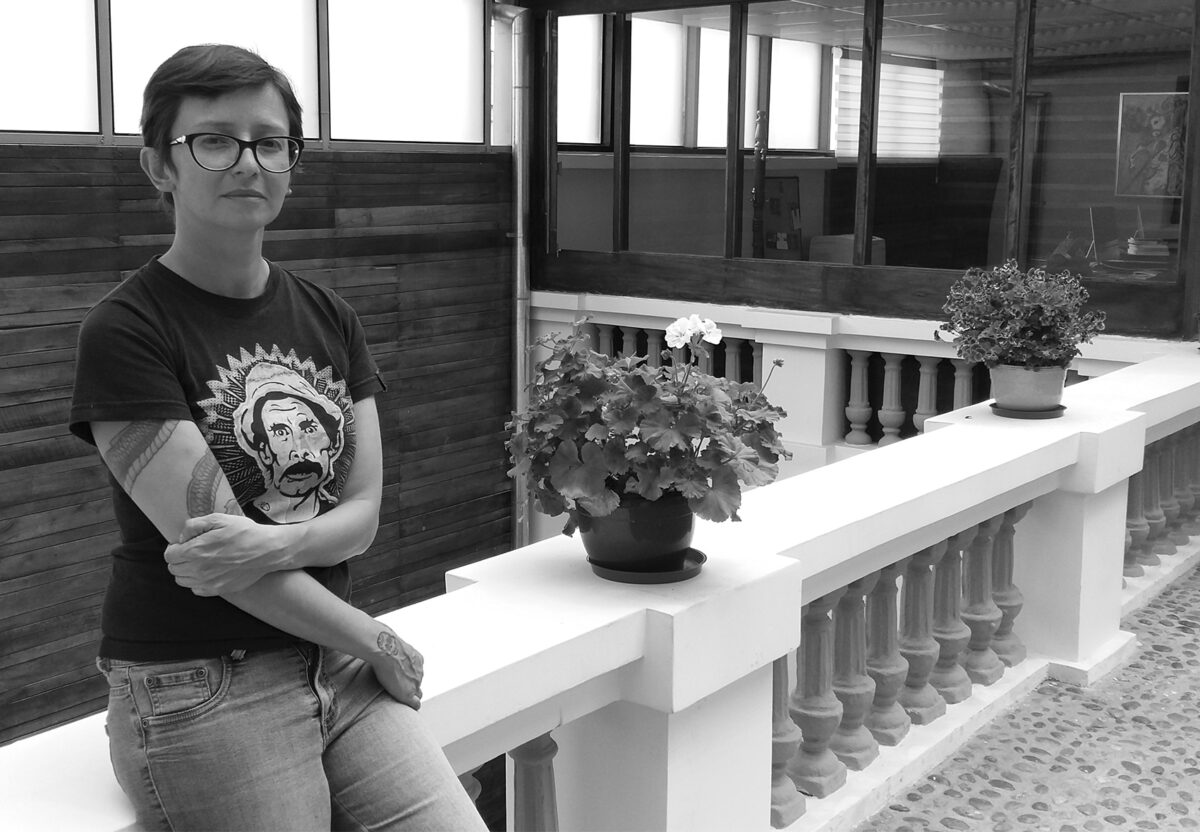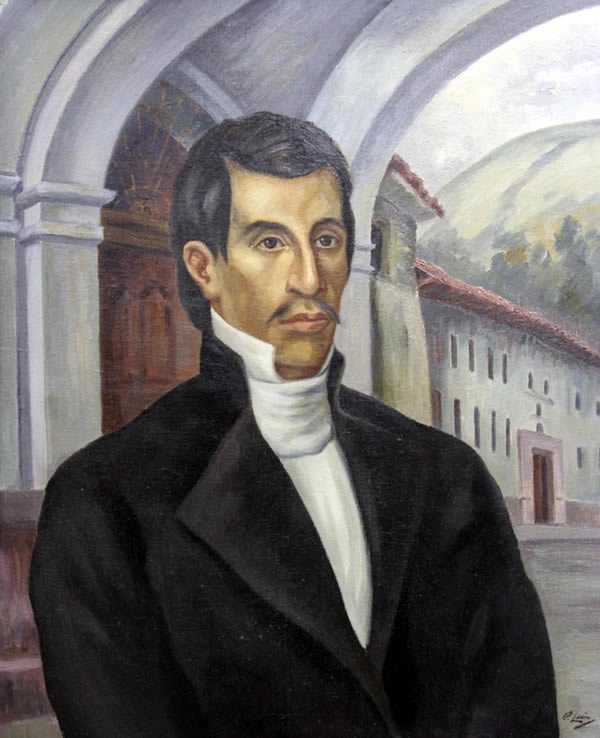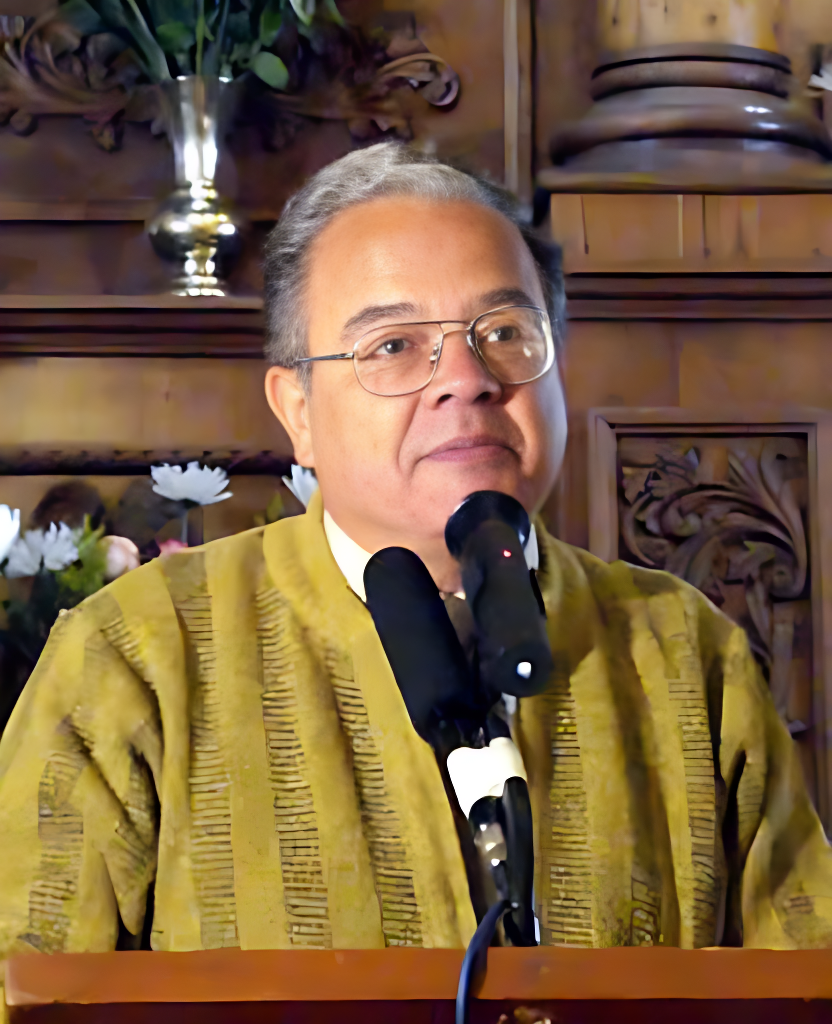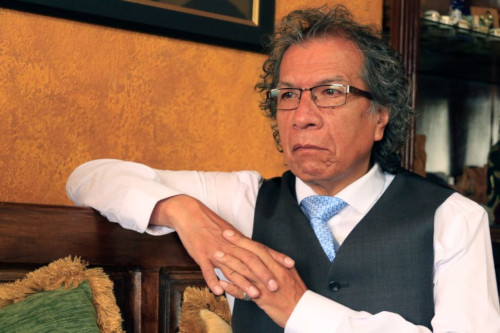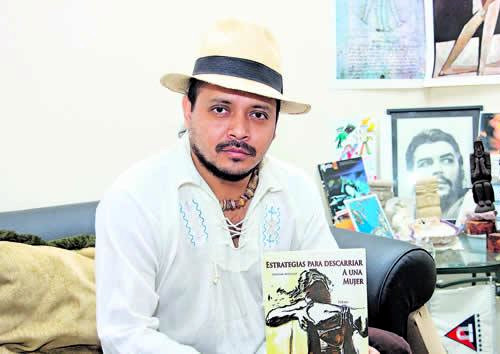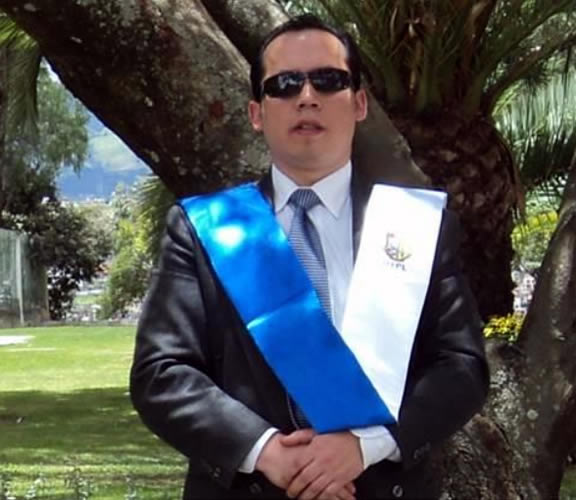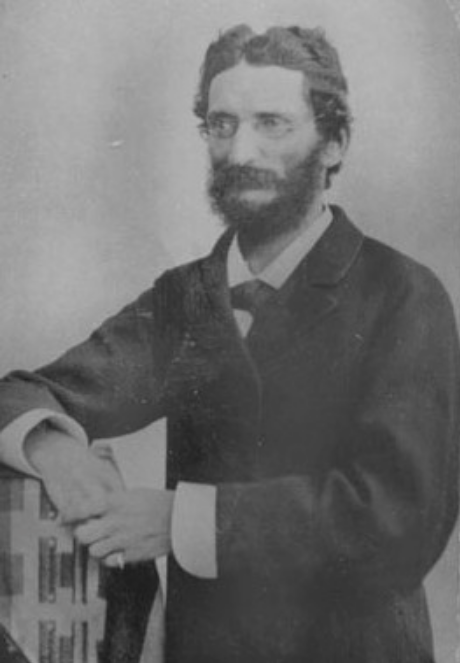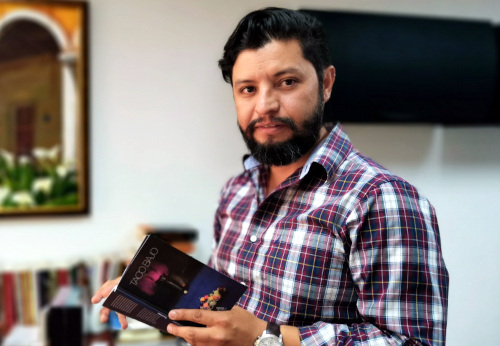Gonzalo Ortiz Crespo (Quito, October 18, 1944) is an Ecuadorian journalist, essayist, historian and writer. He has written three novels: Los hijos de Daisy (2009), Alfaro en la sombra (2012) and Pecunia non olet (2021), a corruption thriller which made it to Primicia.ec’s 2021 list of “the 10 books by Ecuadorian writers that marked the year.” He is a member of the Ecuadorian Academy of Language and the National Academy of History. He wrote for the newspapers El Tiempo, Hoy, EL COMERCIO and the magazine Gestión. He has worked as a university professor and has held various posts such as secretary of communication, secretary of the administration of President Rodrigo Borja, and councilor of Quito.
Continue reading “Gonzalo Ortiz Crespo”Category: Writers from Quito
Gustavo Garzón
César Gustavo Garzón Guzmán (Quito, June 8, 1958) was an Ecuadorian writer and literary critic who vanished without a trace on November 9, 1990. In 1980, he joined Miguel Donoso Pareja’s literary workshop at the House of Ecuadorian Culture and co-founded the literary group “La Mosca Zumba.” On November 9, 1990, he went out with a group of friends to a dance club and was never seen again. At the time, the 32-year-old writer was living in Quito, Ecuador, where he was working on his doctoral thesis in Literature at the Pontifical Catholic University of Ecuador. On January 28, 2021 the Ecuadorian government admitted responsibility for his kidnapping before the Inter-American Court of Human Rights. A documentary about his life, “Brutal como el rasgar de un fósforo,” was made in 2021.
Continue reading “Gustavo Garzón”Luis F. Veloz
Luis F. Veloz (Quito, 1885-1959) was an Ecuadorian poet and sculptor. Along with his friends Aurelio Falconí and Julio E. Rueda, he founded Altos Relieves, one of the first magazines to publish young poets influenced by modernismo in Ecuador. His poems were published in Altos Relieves and the magazine Revista de la Sociedad Jurídico-Literaria. He wrote about art and translated some of the poems of the Italian poet Gabriele D’Annunzio into Spanish. He stopped writing verses to focus on sculpting. In 1918, the Ecuadorian government sponsored him to go the school of Fine Arts in Rome, where he lived for many years. He’s best remembered for his controversial marble statue La Bacante y el Fauno, which was commissioned by the Illustrious Municipal Council of Quito (Ecuador) and created in Rome. Today this statue can be found in the Malecon 2000 in Guayaquil. A collection of his poems and some plays have yet to be published.
Continue reading “Luis F. Veloz”Cecilia Velasco
Cecilia Velasco (Quito, May 1965) is an Ecuadorian author of children’s literature and was editor of the Central Bank’s magazine Difusión Cultural. She worked as a columnist for the Quito newspaper Hoy for nearly two decades. She teaches language and literature to children and adolescents. She was awarded the Norma-Fundalectura’s Latin American Prize for Children’s and Youth Literature in 2010. She currently lives in Guayaquil where she works as a teacher at The University of the Arts (UArtes).
Continue reading “Cecilia Velasco”Sandra Araya
Sandra Araya (Quito, 1980) is an Ecuadorian writer. In 2015, she received the La Linares Prize from the House of Ecuadorian Culture and the National Reading Campaign for her novella “La familia del Dr. Lehman.” Her short stories have appeared in magazines such as El Búho, Aceite de perro, Big Sur, Ómnibus, Casapalabras, Letras del Ecuador and Aurora Boreal. Her work has appeared in several anthologies. She has also written for the publications La Barra Espaciadora and Diners. In 2022, she publisher her first collection of short stories entitled, “Salvajes (del día después).” She is currently the editor of Babieca, a film and theater magazine.
Continue reading “Sandra Araya”Rommel Manosalvas
Rommel Manosalvas (Quito, 1992) is an Ecuadorian author, booktuber and architect. In 2019 his short story “Disforia” was published in the anthology “Los que vendrán 20-20” by the indie publisher Cactus Pink. In 2020, he became the second “Writing World Cup” champion for his short story “Abuelita,” defeating 5400 competitors from 42 countries. An English translation of his story was published in the Yale Review in 2021. His debut novel “Anatomía transparente” was published in 2022.
Continue reading “Rommel Manosalvas”Eugenio Espejo
Francisco Javier Eugenio de Santa Cruz y Espejo (Royal Audiencia of Quito, February 21, 1747 – December 28, 1795) better known as Eugenio Espejo was an 18th-century Spanish physician, writer, librarian, lawyer, and a pioneering figure in colonial Ecuador. Born in 1747, he was of mestizo origin and became a notable scientist and writer, but his true impact lies in his role as a polemicist and advocate for separatism in Quito. Espejo was the first journalist and hygienist in Quito, using his platform to spread enlightened ideas and critique the lack of education, corruption, and cultural aspects of the colonial authorities. He composed an important treatise on sanitary conditions, showcasing his understanding of microorganisms and their role in disease transmission. Espejo’s satirical works, inspired by the Age of Enlightenment, made him a target for persecution, leading to his imprisonment shortly before his death in 1795. Despite his hardships, Eugenio Espejo is regarded as one of the most important figures in colonial Ecuador and left a lasting legacy as a champion of education, science, and social reform.
Continue reading “Eugenio Espejo”Fernando Jurado Noboa
Fernando Jurado Noboa (Quito, 1944) is an Ecuadorian psychiatrist, historian, biographer, essayist and genealogist. Between 1967 and 1975, he studied medicine at the Central University of Ecuador, and from 1976-1979 he studied psychiatry in Spain. In 1973 he became the youngest member of the Ecuadorian Academy of History. He has been one of the most prolific historic researchers in Ecuador and he has published a large number of works. He has authored more than 50 books and 500 articles in historical and medical journals. He founded Ceniga in Quito (1980) and Sociedad Amigos de la Genealogía (1983).
Continue reading “Fernando Jurado Noboa”Carlos H. Endara
Carlos Honorato Endara Garzon, pseudonym Delittante (Quito, December 19, 1896 – Quito, August 2, 1938) was an Ecuadorian poet, essayist, journalist and literary critic. He founded and directed the magazines Ecos Juveniles, Atenea, Bolas y Boladas, and Vida intelectual. He was also a contributor of the magazines Letras and Renacimientos. He worked as a journalist for El Dia before founding Figaro in 1925, an elegantly presented magazine illustrated with Lattore’s satirical caricatures. In 1924, he published “La alcoba de los éxtasis,” a collection of chronicles and short stories.
Continue reading “Carlos H. Endara”Fabián Guerrero Obando
Fabián Guerrero Obando (Quito, 1959) is an Ecuadorian lawyer, poet, writer and university professor. He received a doctorate in jurisprudence from the Central University of Ecuador. He was president of the Ecuadorian Society of Writers (SEDE). He teaches Creative Writing and Textual Linguistics at the Faculty of Social Communication of the Central University of Ecuador. Some of his work has been translated into English, German, French, Greek and Italian.
Continue reading “Fabián Guerrero Obando”Cristian Avecillas
Cristian Avecillas Sigüenzas (Quito, 1977) is an Ecuadorian poet, essayist, playwright, actor, singer and songwriter. He directed the cultural magazine CAMINARTE of the El Telégrafo radio. In 2008 his poetry book “Todos los cadáveres soy yo” received honorable mention at the Casa de las Américas literary prize competition (Cuba). That same year his poetry book “Ecce Homo II” won the César Dávila Andrade National Poetry Prize. He also wrote a book-length biographical study on Edmundo Ribadeneira. His first play Funeraria Travel (2009) won the Latin American Dramaturgy Award (Argentina). It had its debut in 2009 in La Plata, Argentina, and has been performed at theater festivals in Perú, Venezuela, Uruguay and Ecuador.
Continue reading “Cristian Avecillas”Juan Jacobo Melo
Juan Jacobo Melo Fierro (Tulcán, 1973) is an Ecuadorian writer, critic and essayist. He has a masters degree in Latin American Literature from the Private Technical University of Loja. Some of his work has been published in prestigious literary magazines in Ecuador as well as Spain, Mexico, Chile and Argentina. Some of his essays have been translated into English and French.
Continue reading “Juan Jacobo Melo”Jorge Reyes
Jorge Reyes (Quito, 1905-1977) was an Ecuadorian poet, journalist, essayist and socialist. He directed the literary section of the socialist newspaper La tierra, and for many years he was an editorial staff writer for the newspaper El Comercio. His poetry books include: “Treinta poemas de mi tierra” (1926) “Quito, arrabal del cielo” (1930) and “El gusto de la tierra” (1977).
Continue reading “Jorge Reyes”Quintiliano Sánchez
Quintiliano Sánchez Rendón (Quito, April 13, 1848 – Ibidem, July 24, 1925) was a prominent literary figure in Ecuador, known for his contributions as a poet, novelist, journalist, translator, grammarian, and educator. His critical stance against the government of General Ignacio de Veintemilla, his directorship of the Ecuadorian Academy of Language, and his dedication to literature and education left a lasting impact. Through his captivating works, such as the novel “Amar con desobediencia,” his notable poetry like “Oda al Chimborazo,” and his translations of Latin classics, Sánchez Rendón demonstrated his artistic talent and linguistic prowess. His involvement in journalism and the founding of newspapers, along with his role as an influential teacher, further exemplified his multifaceted influence in shaping Ecuadorian literature and intellectual discourse.
Continue reading “Quintiliano Sánchez”Santiago Vizcaino
Santiago Vizcaíno Armijos (Quito, 1982) is an Ecuadorian poet, novelist and short story writer. He has a degree in Communications and Literature from the Catholic Pontifical University of Ecuador (PUCE). He has worked as an editor at the newspaper Hoy, the Office of Publications of the House of Ecuadorian Culture, and the magazine Nuestro Patrimonio (Our Patrimony). In 2008 he published his first book of poetry, Devastacíon en la tarde (translated into English by Alexis Levitin as Destruction in the Afternoon) and a book-length study of the Argentine poet Alejandra Pizarnik, both of which received awards. In 2015, La Caída Editorial published a bilingual version of his short story collection “Matar a mamá/Matricide” with the English translation by Kimrey Anna Batts. In 2017 Vizcaíno published his debut novel Complejo. His second novel Taco bajo was published in 2019. Vizcaíno is currently the Director of the PUCE Center for Publications.
Continue reading “Santiago Vizcaino”
